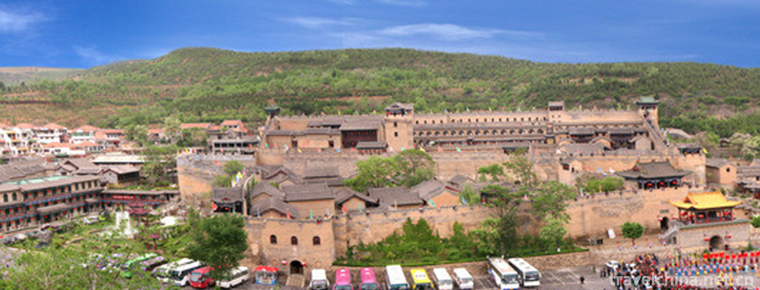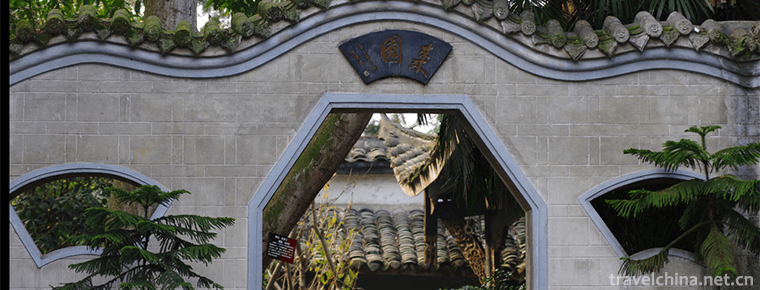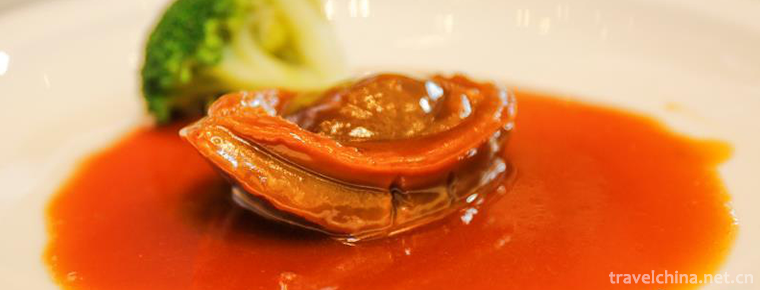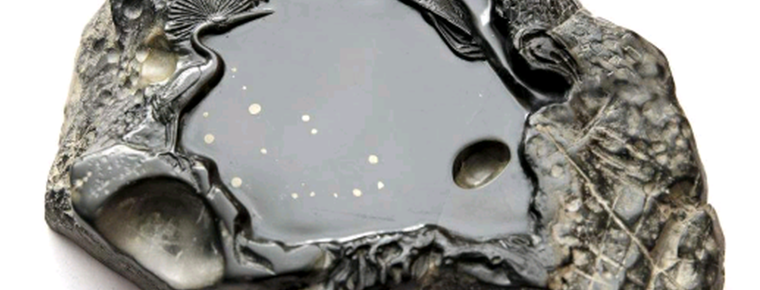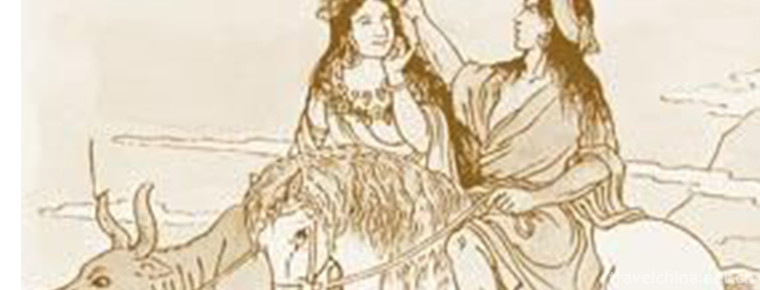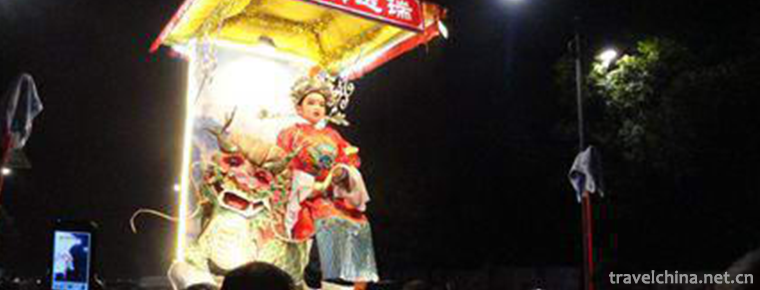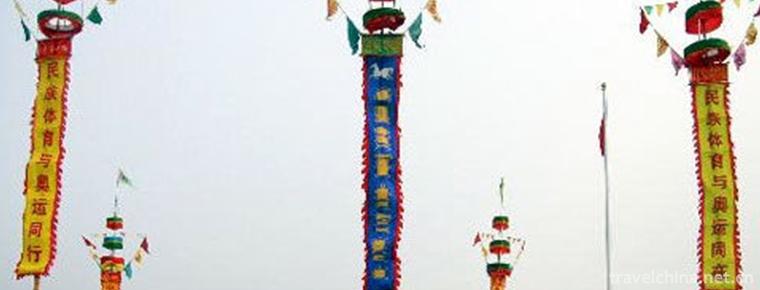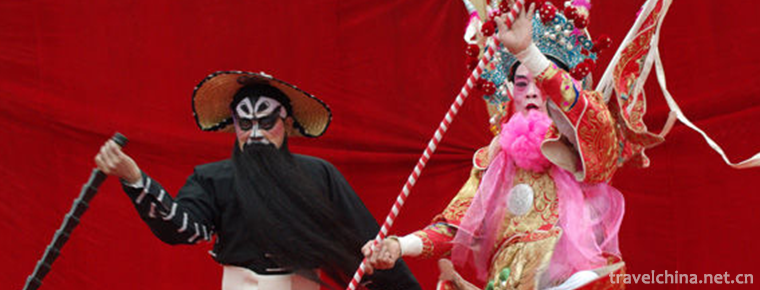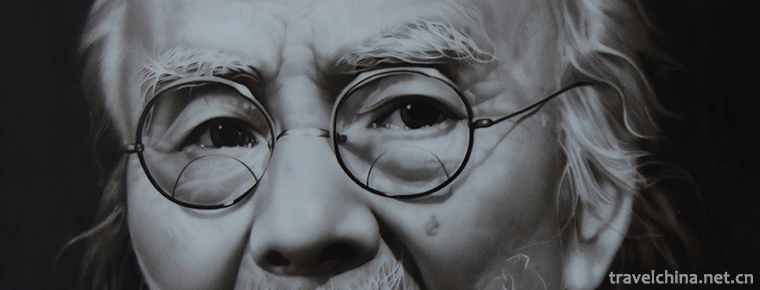Legend of Zhaos Orphans
Legend of Zhaos Orphans
Zhao's orphan legend is one of the folk legends in Shanxi Province. In the folk of Yuxian County, the legends about Zhao's orphans are handed down orally and orderly. Every year, there are more than 100 temples in Yuxian County dedicated to the same God at the temple fair on April 15 of the lunar calendar. That is Zhao Wu, an orphan of Zhao's family, who is the inspiration king. Moreover, every year, the temple fairs have to sing operas, in addition to Tibetan temple fairs, most of the temple fairs will sing "Zhao's orphans".
On May 23, 2011, the legend of Zhao's orphans in Shanxi Province was approved by the State Council to be included in the third batch of national intangible cultural heritage list.
Historical Origin
Both sides of loyalty and treason
The record of Zhao Shijia is as follows: Tu An Jia was the favorite Minister of Jinling Gong (who was killed by Zhao's family because of his fatuousness and cruelty). He was a scoundrel in Jinjinggong and was in charge of the state's political and legal work. Tu'an Jia should make a riot, investigate the case of Jin Linggong being tortured, and use the topic to exterminate Zhao's family. At that time, Han Jue, who had a deep association with Zhao, told Zhao Shuo to flee quickly, but Zhao Shuo refused. Inspired by Tu'an Jia, generals attacked Zhao's palace without authorization and killed Zhao Shuo, Zhao Tong, Zhao Kuo and Zhao Ying (Zhao Shuo is the son of Zhao Dun, Zhao Tong, Zhao Kuo and Zhao Ying are the same father, mother and brother, and Zhao Dun is the same father and half mother). And wipe out the Zhao clan.
Zhao Shuo's wife (historically known as Zhao Zhuangji) is the elder sister of Jinjinggong, who fled to the Jinjinggong Palace to hide with Zhao Shuo's remains. Zhao Shuo's disciple Sun Xiaojiu said to his friend Cheng Ying, "How can we die together without Zhao?" Cheng Ying answered, "Zhao Shuo's wife has a dead stomach. If she is lucky to have a boy, I will take him as the master and help him revive Zhao's family. If she is a girl, I will die no later." Shortly afterwards, Zhao Zhuangji gave birth to a man. Tu Hanjia took people to the palace to look for them. Zhao Zhuangji hid the baby in her skirt and prayed secretly, "If Zhao Shi should be extinguished, you will cry out; if Zhao Shi should not be extinguished, do not make a sound." The baby escaped without making a sound.
Later, Cheng Ying consulted Gongsun Zhujiu and said, "Tu'an Jia will not be reconciled. He will certainly come back and look up again. What do you say?" Gongsun Zhujiu asked, "Which is more difficult to restore orphans and die?" Cheng Ying answered, "It's easy to die, but it's hard to stand alone." Gongsun Zhujiu said, "Zhao's ancestor is not mean to you. You are still doing difficult things. I do easy things. Let me take the first step."
So they took other people's babies with them and hid them in the mountains. Cheng Ying found the generals secretly and said, "Cheng Ying is not good enough to preserve Zhao's orphans. If anyone can give me a thousand dollars, I'll tell him where the children are hiding. Zhu Da was very happy. He promised Cheng Ying's condition and attacked Gongsun Zhujiu. Gongsun Zhujie cursed wilfully, "You are a little man, Cheng Ying!" On that day, he could not die with Zhao. He also discussed with me to protect Zhao's orphans, but today he sold me out. Even if you can't stand alone, how can you have the heart to sell the child! " So he held the orphan in his arms and looked up to heaven and sighed, "Oh my God! What is the crime of Zhao's orphans? Please let him live and kill only one of my grandchildren. The generals should not, so they killed Gongsun Xiaojiu and the child. Cheng Ying, bearing the name of salesman seeking honor, hid in the mountains with the real Zhao orphans.
Fifteen years later, Jinjinggong was seriously ill. The diviner called it a resentful minister. Han Jue took the opportunity to tell Jin Jinggong the facts about the difficulty of going to the palace that year, and told him that Zhao's orphan was not dead. Jin Jinggong summoned Zhao Wu and hid him in the palace. When the generals came to the palace to ask about their illness, Jin Jinggong used Han Jue's strength to coerce them to meet and recognize Zhao Wu, an orphan of Zhao's family, and together with Cheng Ying and Zhao Wu, they attacked Tu'an Jia and destroyed his family.
When Zhao Wu grew up, Cheng Ying said to Zhao Wu, "In the past, when it was difficult to go to the palace, everyone could die with his master. I can't die. What I want is to restore Zhao's descendants. Now that you have grown up and regained your original position, I want to go to the underground newspaper to know with Zhao Dun and Gongsun Xiaojiu. Zhao Wu cried and kowtowed and asked, "Zhao Wu is willing to work hard to repay your kindness. How can you bear to leave me to die?" Cheng Ying said, "No. Gongsun Zhujiu thought that I could revive Zhao's great cause, so he died before me. Now that I don't report it to him, he'll think I didn't get it done." So he pulled out his sword and killed himself.
Right infighting
The historical records of the "difficulty of going to the palace" are quite different. Earlier Zuo Zhuan described that Zhao Zhuangji had an affair with Zhao Ying (which should have been incestuous by his uncle and nephew's wife shortly after Zhao Shuo's death). Zhao Ying was expelled from Jin by Zhao Tong and Zhao Kuo brothers and died in Qi. Zhao Zhuangji, with hatred, falsely accused Zhao in front of Jin Jinggong and said, "Zhao Tong and Zhao Kuo will be in trouble". At the same time, Luan's family and Yun's family, which had long been in contradiction with Zhao's family, took the opportunity to testify for Zhao Zhuangji. Therefore, the Jin State slaughtered Zhao Tong and Zhao Kuo and destroyed their families. At that time, Zhao Wu lived with Zhao Zhuangji in Jinjing Palace.
Shortly after (inferred from relevant records, it should be half a year to two years), Han Jue talked to Jin Jinggong about Zhao Shui and Zhao Dun's achievements, saying that if such people had no ancestors to offer sacrifices, who would be willing to serve the country. So King Jinggong of Jin rehabilitated Zhao Wu as his heir and restored Zhao's title and feudalism. Other classics such as Guoyu and Shiji Jinshijia (hereinafter referred to as Jinshijia) have the same record, and the whole context of the incident is basically clear.
Why are the historical records of the same event so different? We have made a textual research and analysis of the relevant materials about the "difficulty of going to the palace" in the historical books, and come to the following conclusion: the so-called "Zhao's orphan" theory in Zhao Shijia has many fictional elements. Main evidence:
First, the historical facts of the so-called "Zhao's remains" are not credible. Zhao Shijia did not write much about Zhao Shuo, but Zhao Shuo inherited his position after Zhao Dun died. In Jinjinggong's three years, commander-in-chief under Zhao Shuo fought against the State of Chu, and his political status was still higher than that of Zhao Tong, Zhao Kuo and Zhao Ying brothers. Since then, there has been no news of him in the records of Zhao's family. Maybe he died young. Later, Zhao Ying and Zhao Zhuangji said that they had adulterated. According to the time interval reasoning, Zhao Zhuangji in Jinggong's seventeen years could not bear Zhao Shuo's remains. According to Zuo Zhuan, "Zhao Tong, Zhao Kuo and Wu Congji's livestock were in the Palace in June." "Guoyu. Jinyu Jiu" is also called Zhaowu "from Ji's family to the Palace". It can be seen that when Zhao Wu was young, he lived with his mother according to his uncle (Jinjinggong). Thus, the records of "searching for orphans and rescuing orphans" and Gongsun Zhujiu and Cheng Ying are not credible enough.
Secondly, the scope of "the difficulty of going to the palace" in Zhao Shijia is obviously wrong. Tu'an Jia, in order to investigate the case of Jinling Gong's murder, "took the advantage of all generals to attack Zhao's family in the Lower Palace, killing Zhao Shuo, Zhao Tong, Zhao Kuo and Zhao Ying without invitation, and destroying their families." Here, there is no mention of Zhao Chuan, the chief culprit of Yijun, and Zhao Jun's family, who is also a doctor of Qing Dynasty. However, both Jinshijia and Zuozhuan said that only Zhao Kuo and Zhao Tong brothers were slaughtered at that time. Zuo Zhuan contains Zhao Ying and Zhao Zhuangji who adulterated and died in the fifth year of Lu Chenggong (586 years ago). Although the specific age of Zhao Shuo's death could not be verified, Zhao Ying had to commit adultery with Zhao Zhuangji, indicating that Zhao Shuo was indeed dead at that time. If Zhao Ying and Zhao Shuo's nephew all died when the "difficulty of going down to the palace" happened, the loopholes in Zhao Shijia's records would be obvious.
Thirdly, there is a contradiction between the time of the disaster of going to the palace in Shiji (three years before Jinjinggong, 597 years ago). Sima Qian's Jinshijia and Shiji, the chronology of twelve princes, clearly recorded that the incident occurred in the seventeenth year of Jinjinggong (583 years ago). The relevant records of Zuozhuan are the same. Zhao's involvement in many historical events three years after Jinjinggong. For example, in the sixth year of Jinjinggong (594 years ago), the emperor of Jin made Zhao Tongxiandi a prisoner in Zhou Dynasty. In the fifth year of Lu Chenggong (586 years ago), Zhao Ying had adultery with Zhao Zhuangji and was banished by Zhao Kuo and Zhao Tong brothers. In the twelve years of Jin Jinggong (588 years ago), six Qings were installed in the beginning of Jin Dynasty, and Zhao Kuo and Zhao Jun were both Qings. It can be inferred from this that the "difficulty of going down to the palace" could not have happened in Jinjinggong's three years.
Fourth, about the time of Zhao Wu's restoration. "Zhao Shijia" and "Han Shijia" are both known as "the difficulty of going to the palace" in Jin Jinggong three years (597 years ago), after 15 years Jinggong seventeen years (583 years ago) and re-established Zhaowu. But Chunqiu, Zuozhuan and Jinshijia are totally different from this record. Jinggong's seventeen-year record in Jin Shijia is that Zhao Tong and Zhao Kuo were criticized and the clan was destroyed. Han Jue said, "Should Zhao Shui and Zhao Dun's achievements be forgotten?" I can't help offering sacrifices!' It was after Zhao Shuziwu was appointed as Zhao, that Zhao Shuziwu was rejoined as a city. The Chronicle of the Twelve Princes in Historical Records, seventeen years of King Jinggong of Jin Dynasty, said, "Return to Wutianyi of Zhao Dynasty." It can be seen that the time interval between the criticism of Zhao clan and the restoration of Zhaowu is not far away. It can also be proved that the assassination was indeed the Zhaotong and Zhao Kuo families. Zhao Wu, a nephew of King Jing of Jin Dynasty, lived in the palace with his mother and seemed not to be affected by the incident.
The author believes that the historical background of "the difficulty of going to the palace" is much more complicated than the relevant records. In the middle and late Spring and Autumn Period, the influence of government officials in various countries became stronger and stronger. Especially in Jin Dynasty, Zhao family, Luan family, Yun family, Han family, Xun family, Shi family, Wei family, Zhi family and other family talents help, leading the country's military and political power. Between the office and the doctor, the contradiction between the doctor is becoming more and more acute. Even within the same clan, there are disputes over clan rights (i.e. clan power and clan power). Around this series of contradictions, there have been many farces of killing monarchs and ministers and fighting among the Qings. For example, Jin Linggong was killed by Zhao Chuan; Jin Jinggong and Qing Doctors killed Zhao; Jin Ligong killed the Ling family; Luan Shi, Zhonghang Shi killed Jin Ligong and so on.
As far as "the difficulty of going to the palace" is concerned, Zhao Zhuangji falsely accused Zhao Tong and Zhao Kuo of conspiring in disorder, which is the direct reason for the criticism of Zhao clan. There are two purposes: one is to retaliate against Zhao Tong and Zhao Kuo for exiling Zhao Ying; the other is to take the opportunity to restore Zhao Wu's orthodox status in the Zhao family. Zhao's three generations (Zhao Shui, Zhao Dun and Zhao Shuo) were in power, which had long been in contradiction with Luan's and Yun's Qing forces. Zhao Zhuangji's false accusation gave Luan's and Yun's Confessions of attacking Zhao's family. Actively offering perjury is actually killing people with knives and clear intentions. Jinjinggong, however, took advantage of the contradictions between the Qing doctors and tried to weaken the forces of all parties through civil strife in order to consolidate the office. As for Tu'an Jiaqi, although he could not find out his behind-the-scenes instructions, he was at best a little man who was exploited and then ruthlessly abandoned.
Current situation of inheritance
In 2010, "Legend of Zhao's Orphans" was declared as "the third batch of intangible cultural heritage at the national level".
Inheritance Significance
Tibetan Mountain is named for hiding Zhao's orphans. The Tibetan Gudong, Baoen Temple, Yuguyuan and other scenic spots in the Tibetan Mountain Scenic Area, as well as the names of villages and mountains near Dawei, Huang'anling, Baojianggou and Luojianshan, are all evidences of Cheng Ying's escape from pursuing and killing orphans and rescuing orphans. The story of Zhao's orphans has gradually been passed on into a myth. Zhao Wu is worshipped as "the King of Tibetan Mountains". 134 temples of Zhao Wu are extant in Hebei Province and Taiyuan City, centered on the Tibetan Mountains in Yuxian County. Among them, 108 in Yuxian, and Dawang Temple in Yuxian and Yangqu are national preservation cultural relics. In January 2004, Gong Shuduo and other senior historians attended the Symposium on Promoting National Spirit, Zhao's Orphans and Tibetan Mountain Culture held in Beijing, and re-positioned Tibetan Mountain as the hiding place of Zhao's orphans. Later, it was recognized by Shanxi Tourism Bureau as "a famous historical and cultural mountain in the Three Jin Dynasty".
This solemn and stirring story was first seen in Zuo Zhuan and Shi Ji, and later recorded in the Records of the Eastern Zhou Dynasty, Dayuan Datong Zhi, Taiyuan Zhi, Daming Yitong Zhi and Shanxi Tongzhi.
Zhong Lingyuxiu's Tibetan Mountains and the simple and kind local people constitute the conditions for protecting the time, geographical location, and people of the Zhao family after Zhongliang, and also create the pillars of the country and Zhao's ancestors. It can be said that without Tibetan orphans, there would be no "three families divided into Jin Dynasty", "Jinyang Ancient City", "Seven Kingdoms competing for supremacy", "Zhao Song Dynasty". China's history would have to be rewritten. Therefore, Tibetan orphans have made indelible contributions to China's historical development.
The historical and cultural value of The Orphan of Zhao has become the material of writers'creation and has been widely disseminated. Ji Junxiang, a playwright of the Yuan Dynasty, first adapted it into a dramatic work, Orphan Zhao, which became the top ten tragedies in China. Voltaire, a French writer in the eighteenth century, translated it into the drama "Chinese Orphans" and performed it in Europe, which caused a sensation. It is the earliest classical drama work that went abroad in China. The loyalty culture formed by Tibetan orphans in Tibetan Mountains is not only an important part of Yuxian County, but also an important part of Shanxi, China and even the world culture. It is also a vivid textbook for building a harmonious society and establishing a socialist outlook on honor and disgrace.

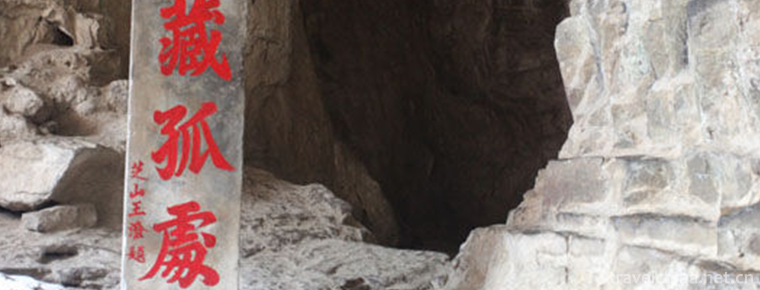
-
Royal Prime Ministers Palace
Huangcheng Xiangfu (National AAAAA Scenic Area) is located in Beiliu Town, Yangcheng County, Jincheng City, Shanxi Province..
Views: 145 Time 2018-11-24 -
Xijiashan Folk House
Xijiashan Residence, a national key cultural relic protection unit and national AAAA-level tourist attraction, is located in Xijiashan Town, Jiang'an County, Yibin City, Sichuan Province.
Views: 492 Time 2019-02-25 -
Eight dishes
Eight-flavor dish is a delicacy, the main ingredients are green pepper, 1000 grams; soybean, 1000 grams; head vegetables, 3000 grams; sugar, 250 grams; vinegar, 250 grams; salt, 250 grams; soy sauce, .
Views: 448 Time 2019-03-27 -
Venus Inkstone Making Skills
Venus inkstone making technology, the local traditional handmade inkstone making technology in Xingzi County, Jiangxi Province, is one of the national intangible cultural heritage..
Views: 264 Time 2019-05-07 -
Legend of the ancestors of Khitan
The legend of the ancestors of Qidan is a folk legend that is spread in Pingquan County, Hebei Province, China. According to legend, the ancestors of Qidan were born on the Futu River in Mayushan.
Views: 112 Time 2019-06-10 -
Raise the Pavilion
Lifting the pavilion, also known as the pavilion, is a unique traditional folk dance that integrates historical stories, myths and legends, and integrates painting, opera, tie-up, paper sculpture, acr.
Views: 139 Time 2019-06-18 -
Central Crossing of Flyover
Zhongbian is a local traditional folk acrobatics in Beijing. Beijing's overpass is a prosperous and lively civilian market with a long history, well-known at home and abroad. During the reign of Emper.
Views: 234 Time 2019-06-21 -
Guangxi drama
One of the local operas of the Zhuang nationality in Guangxi. Yongju Opera belongs to the Pihuang Vocal Tune System, which originated in Hunan. It was formerly called Guangju Opera, Old Opera, Local O.
Views: 166 Time 2019-07-14 -
Guang fan Lu
Bian Guang fan, Zi Yi, was born in the first year of Tang Zhaozong's Tianfu (901 years). Emperor Taizu of Song Kai Po six years (973 years), and the state of Yangqu (now Shanxi Taiyuan Yangqu), he has.
Views: 185 Time 2019-09-14 -
Shenhai well
Zigong Shenhai well is located at the foot of ruanjiaba mountain in Da'an District, covering an area of 3 mu, with an altitude of 341.4 meters. The well was excavated in the third year of Daoguang in Qing Dynasty (1823 A.D.) and completed in the 15th year of Daoguang (1835 A.D.), which lasted 13 years.
Views: 142 Time 2020-10-15 -
Meishan science and technology
In 2019, 80 science and technology projects above the municipal level will be organized and implemented, and 27.73 million yuan of free science and technology project funds will be put in place. In the whole year, 433 patents were applied and 94 patents were.
Views: 356 Time 2020-12-18
